GALLERY 05 | WATER & EQUITY
EXHIBIT 01/02 04
A Tale for the Years: Water, Rights and Equity
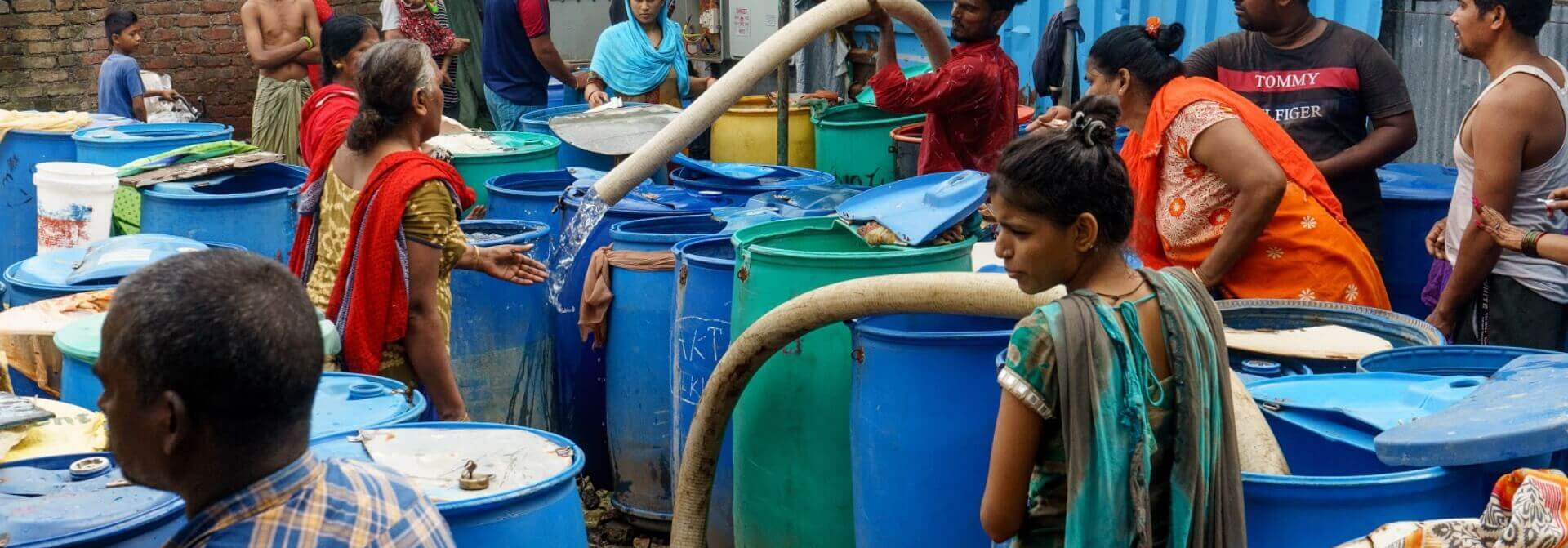
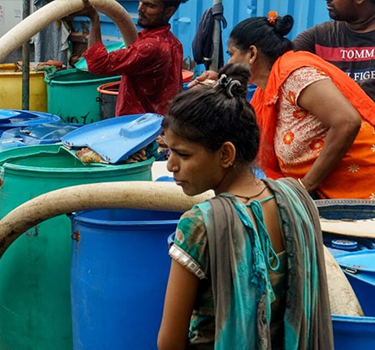


Siddharth Nagar does not have access to the city’s formal water network due to a variety of reasons, and this complicates life even further for Anita and Dhananjay. Their legal status and water security continue to be unanswered questions.
This exhibit attempts to trace their current reality and hopes for the future which are all inextricably linked to formal water and everything it represents in the city of Mumbai.
Siddharth Nagar does not have access to the city’s formal water network due to a variety of reasons, and this complicates life even further for Anita and Dhananjay. Their legal status and water security continue to be unanswered questions.
This exhibit attempts to trace their current reality and hopes for the future which are all inextricably linked to formal water and everything it represents in the city of Mumbai.
A legal tap connection is an urban myth for countless citizens settled in informal settlements. The task of informally procuring water from leaks, tankers, unauthorised connections and neighbouring residents is a physically and financially demanding ordeal. This story explores the lives of a visually impaired couple and how they manage without legal water connection.
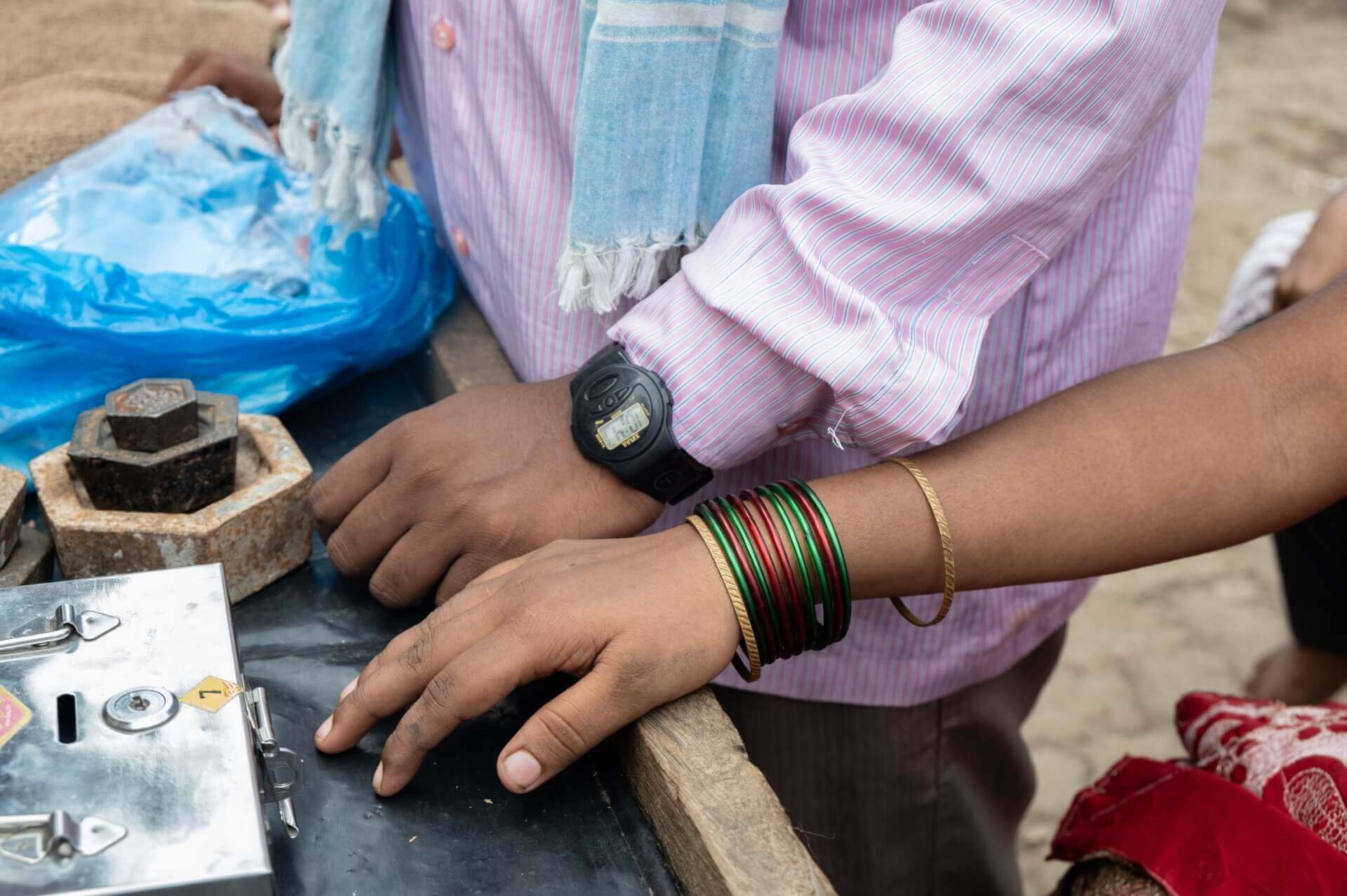
Pictured at the entrance of their community, Anita and Dhananjay in the west suburbs of Mumbai, along with their vegetable cart - their first attempt to earn since the nationwide lockdown. During the lockdown, the couple relied on a monthly donation of 2600 INR (US$35) from a nearby church and occasional free rations provided by the Govt, NGOs and kind strangers.
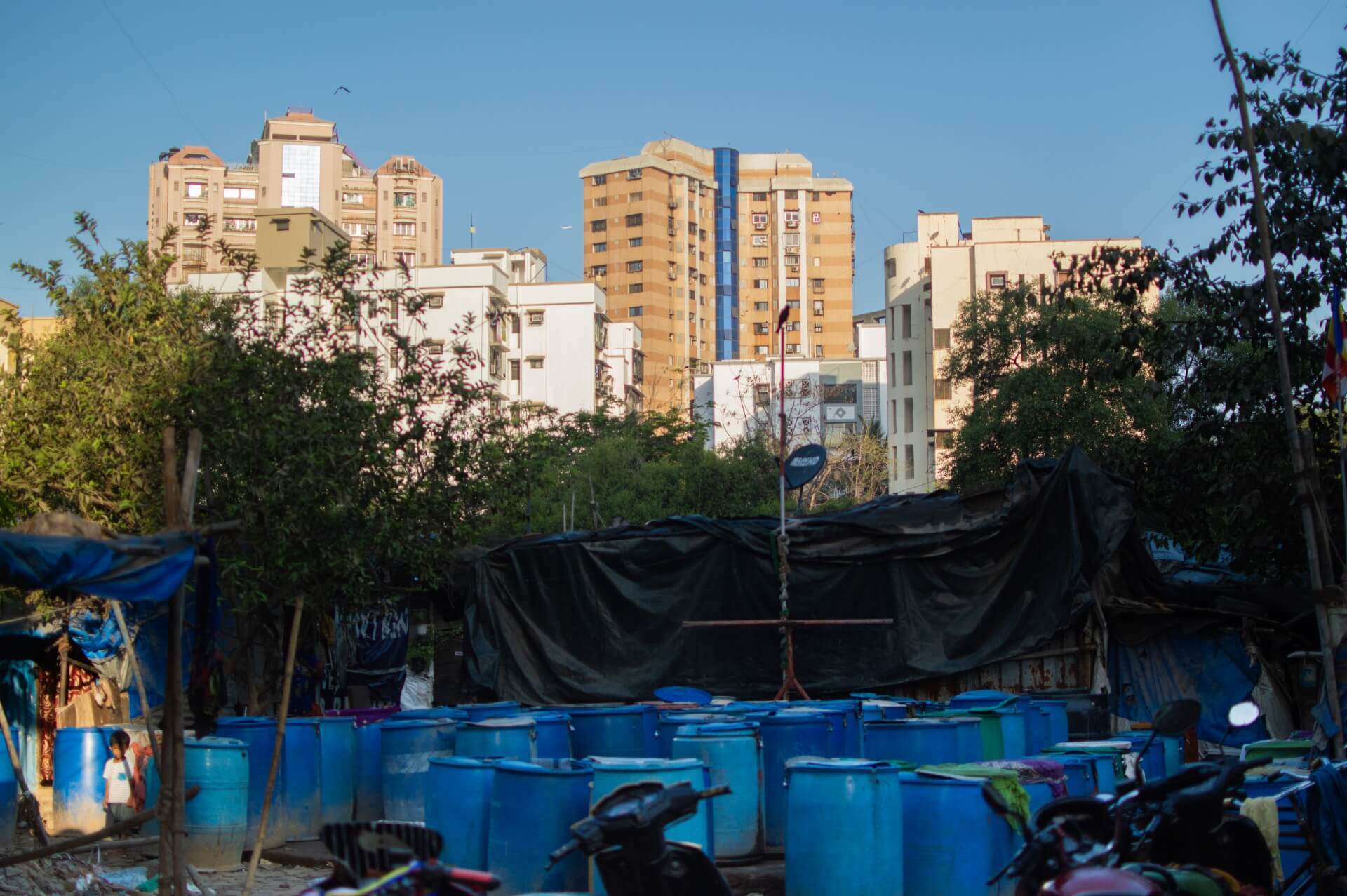
Tucked behind the end of the main road of a mid-income residential colony at Andheri West is Siddharth Nagar, an informal settlement. There is no formal tap connection in this settlement to meet the water requirements of the 4000 people that call it home.
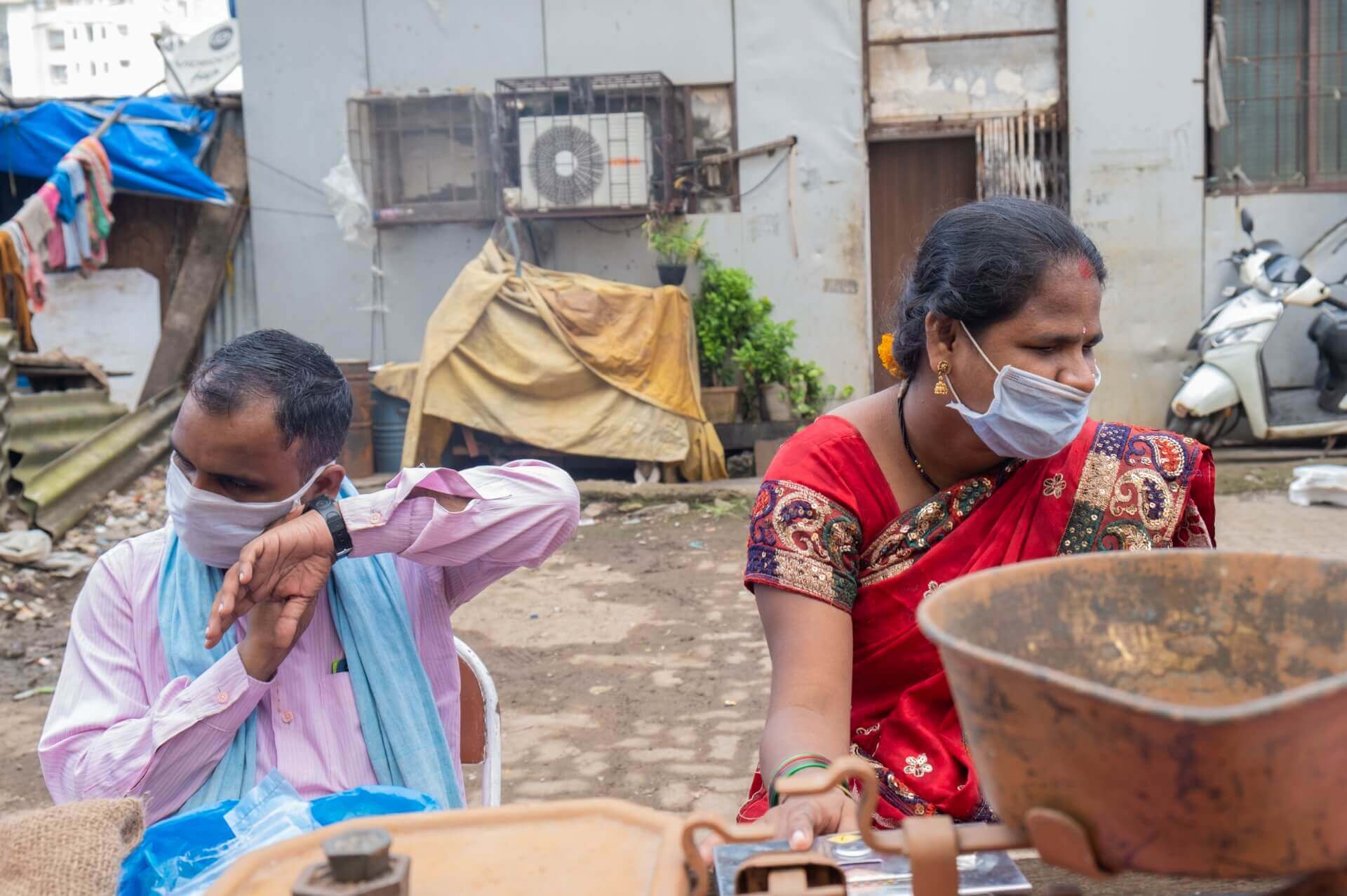
The 9 storeyed residential building opposite the settlement casts a shadow in which they’d prefer to stand. But like the piped BMC water that flows to the building, its shadow is also inaccessible to them.

Before the nationwide lockdown was imposed, Anita's mother would transport 20 litres of potable water from her employers' homes, where she works as house help. The couple spends approximately Rs.1000 rupees per month for procuring water.
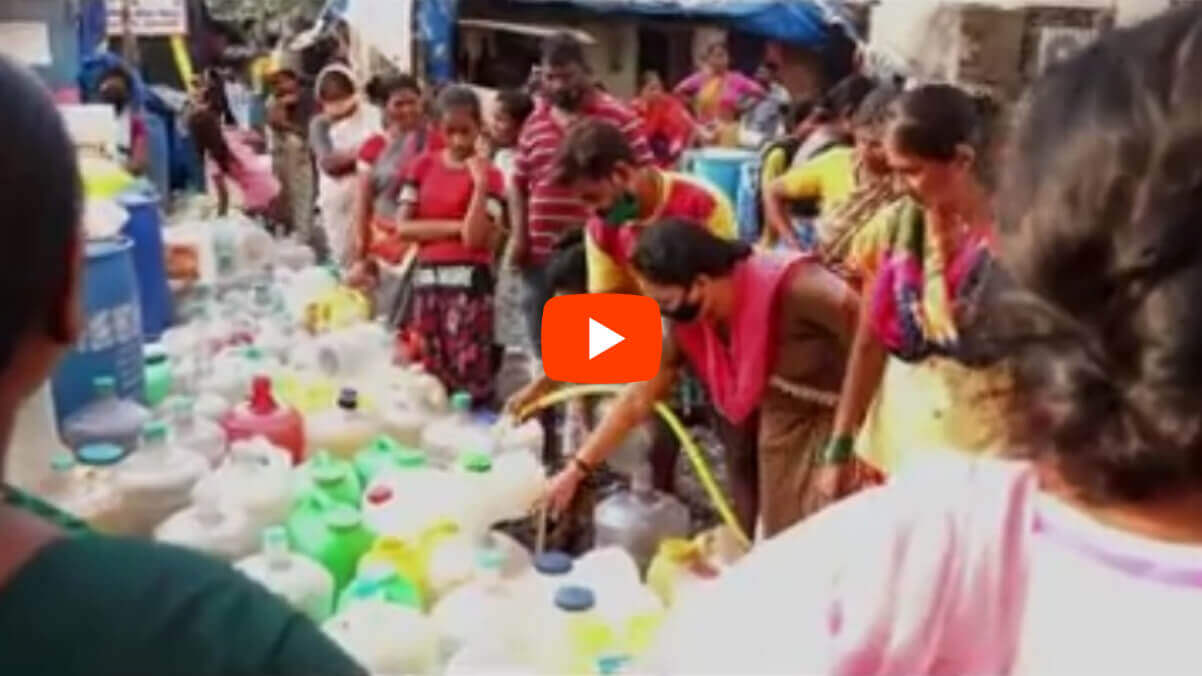
Since queuing, filling and carrying water canisters is difficult for the couple, they are mostly helped by Anita’s mother and sometimes their friends and neighbours. Aside from what the BMC sometimes provides, they need an additional 200 litres per day for basic household requirements.
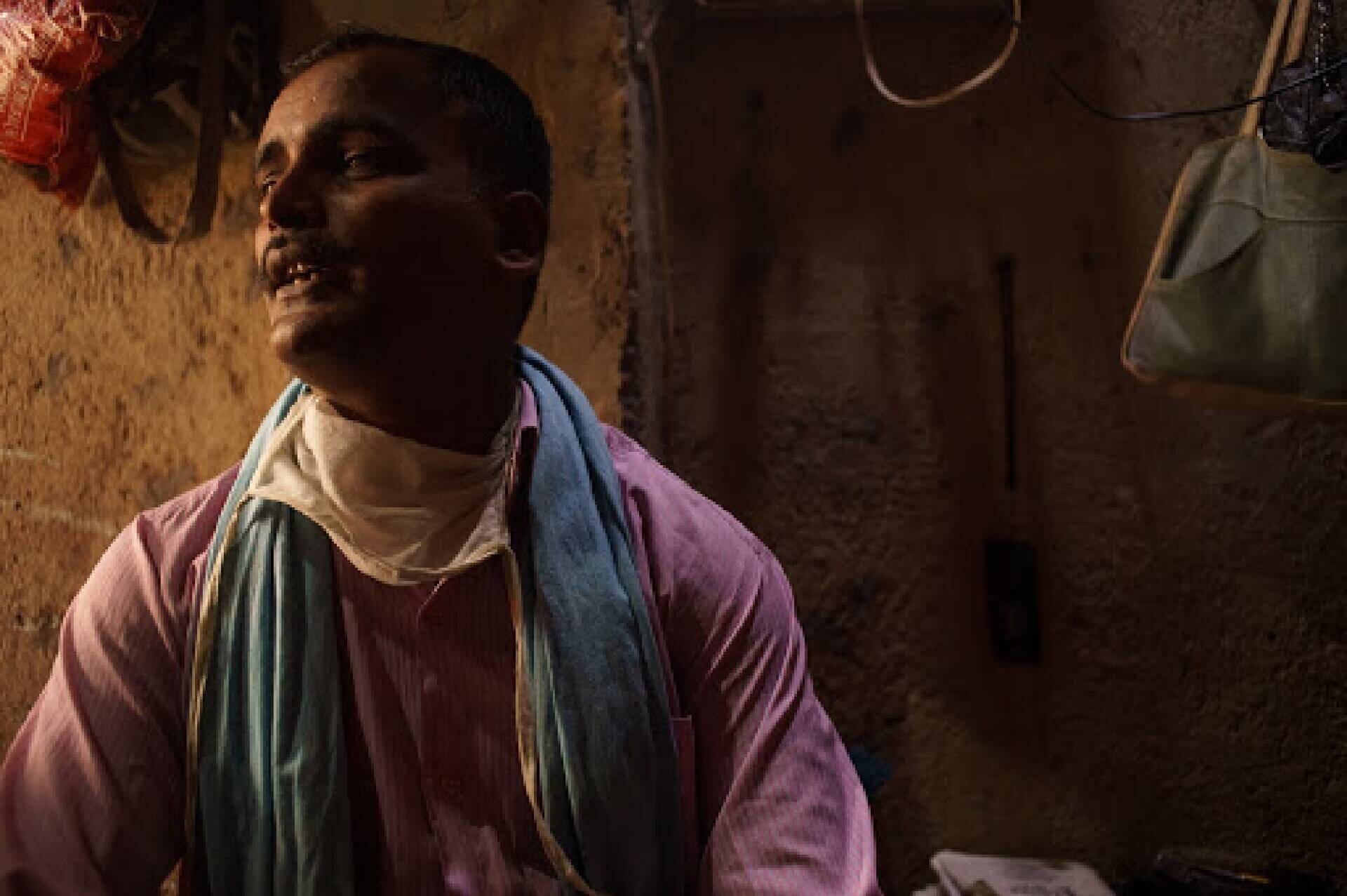
Over the years, Dhananjay has repeatedly attempted to formalize their roadside cart into a formally licenced shop and run a stable business. But even after visits to the local MLA corporator to request benefits for the differently-abled have not enabled him gain an authorised permit, simply because ‘Siddharth Nagar’ is not considered an accepted legal address by governing structures.

The couple was matched by Dhananjay’s grandmother due to their shared disability and have been together for 7 years. It has been their near and extended family, who have made it easier for them to cope with hard times. Neha (pictured) also a resident of Siddharth Nagar is not a first family member but considers Anita as a sister and provides daily support to the couple.
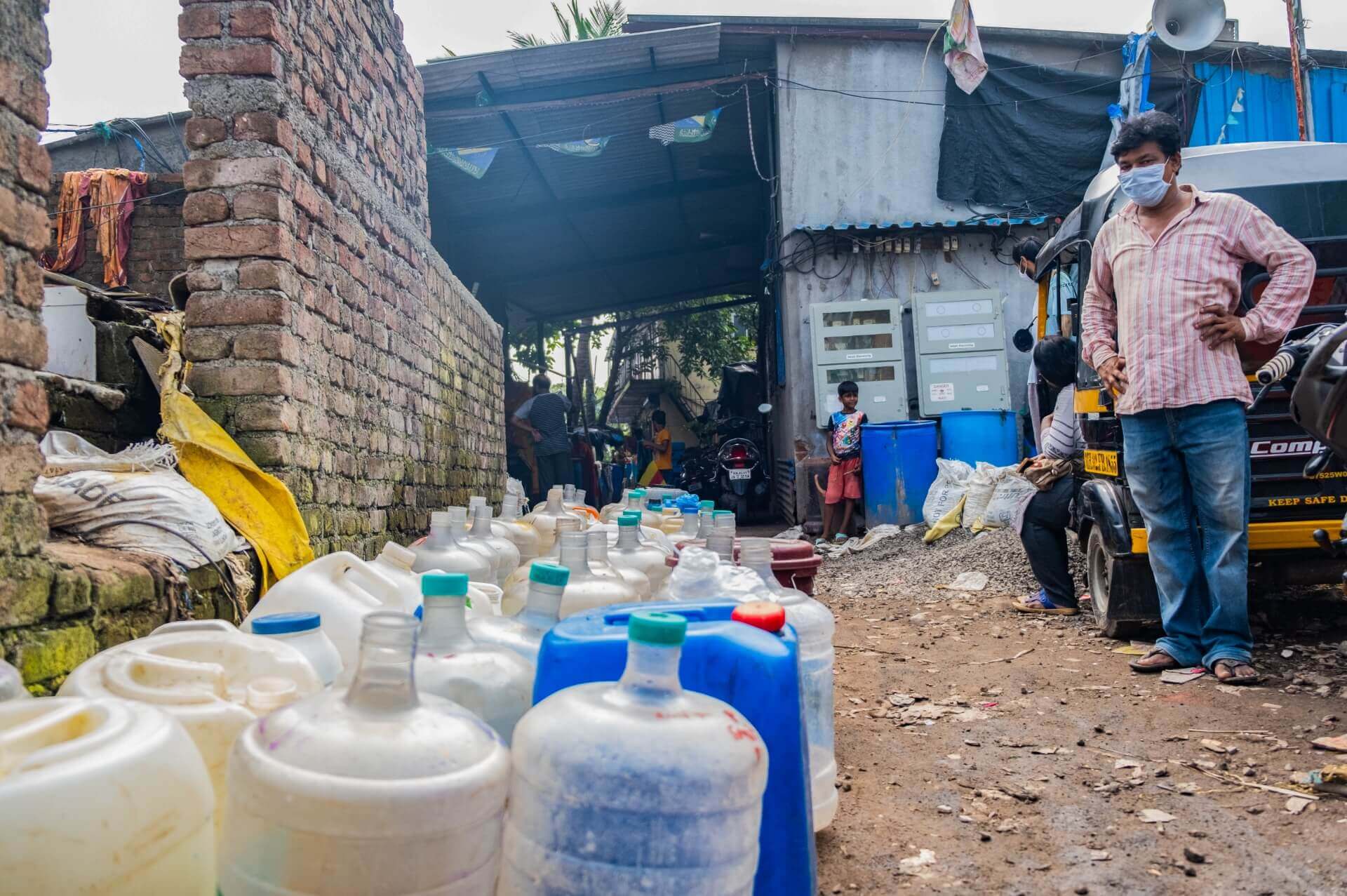
Neha’s husband, Jaimati is a community leader and has been patiently building a paper trail for four years, towards an application for a legal water connection. He also coordinates with BMC officials for the delivery of water and tries to maintain order among residents when delivery is uncertain.

Constantly declined by the BMC and shunned down upon by the residential society opposite them, Anita and Dhananjay are surrounded by resilient individuals and family members who help them cope with difficult times. Through periods of uncertainty, it is this unwavering spirit of community and the belief they hold in their rights that stands out.
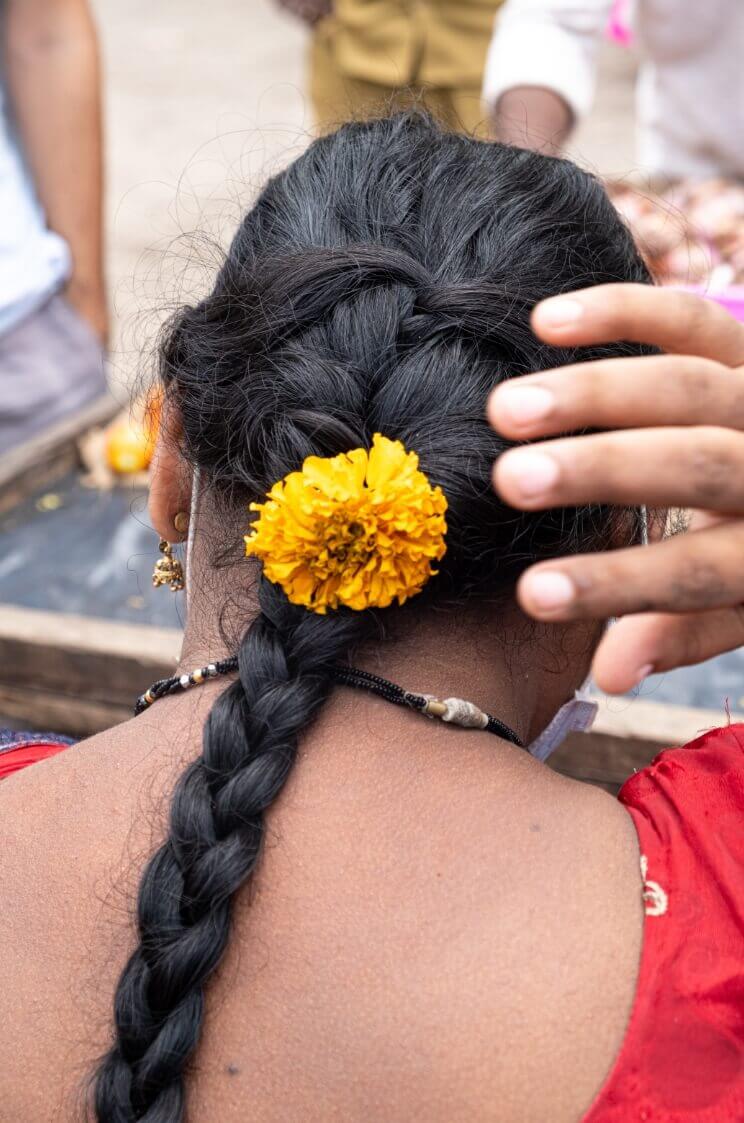
As the interview comes to a close, the sound of a song Anita had written and sung remains. There could not be a more fitting reminder of the extent to which water access influences lives.